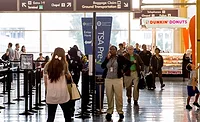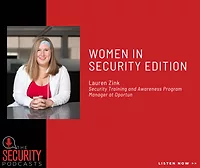Testing Wireless Security Awareness at RSA
In February, a crowd of cybersecurity professionals attended the RSA Conference in San Francisco.
In February, a crowd of cybersecurity professionals attended the RSA Conference in San Francisco. One cybersecurity CEO, Kent Lawson, founder of Private WiFi, a VPN for consumers and small businesses, read a disclaimer in the official conference guide regarding the free and admittedly insecure wireless network. It said: “We strongly recommend that you use appropriate security measure, such as utilizing a VPN connection, installing a personal firewall and keeping your operating system up-to-date with security patches.”
His curiosity was piqued, so he decided to see how many of these world-class security experts actually followed this common sense advice. Using a “sniffing” tool he hacked into the Wi-Fi communications. As you would expect, a lot of the traffic was indeed encrypted – these were security experts, after all.
But as suspected there was also a large amount of completely unprotected communications. Keep in mind it only took about 15 minutes of sniffing to find this much information.
So what were the attendees of RSA doing on the Internet that he could see?
- Some of them were pretty standard and expected, such as apple.com, Google, MSN, Yahoo, LA Timesand a news site in Madrid.
- Others were a bit more delicious, looking at sites that had articles on “the world’s 7 best party countries.”
- Of course, lots of people were doing real work, including checking email and other various marketing and technology sites, including one in Portugal.
- Others were on various social networks, such as Facebook and sharethis.com.
So what does it all mean?
Since even those who are most aware of the risks can be lax at times, it means that the general public has to be continually reminded to use the right technology to protect themselves. It has been 30 years since seat belts were mandatory, yet we still need signs around saying “Buckle Up.” In the case of using VPNs to encrypt Internet communications in Wi-Fi hotspots, we clearly have a long way to go.
Were you surprised at these findings?
Not at all surprised. We are quite well aware that most people who use Wi-Fi hotspots, while they are generally at least dimly aware that they are at risk, go ahead and use it anyway, without taking the extra precaution of using a VPN.
Why do people continue to take these types of risks?
We’re all human and sometimes a bit lazy. But more to the point, even if you did get hacked, how would you know? Wi-Fi sniffing is the ultimate stealthy crime, since there is absolutely no way to know that it is going on.
Does every public venue that offers free wireless have a similar disclaimer?
They do! We have made it a practice to actually look at the T&Cs of every Wi-Fi hotspot that we find. Every single one of them has a disclaimer along these lines, which we picked up at JFK airport: “Wireless systems use radio channels to transmit voice and data communications over a complex network. Privacy cannot be guaranteed, and we are not liable to you or any other party for any lack of privacy you experience while using the Service. If you use the Service in a public location, you understand that others may be able to see and observe your use of the Service. You acknowledge that the Service is not inherently secure and that wireless communications can be intercepted by equipment and software designed for that purpose. We strongly encourage and support certain customer-provided security solutions, such as virtual private networks, encryption and personal firewalls, but do not provide these to our users and are not responsible for their effectiveness.” The only exceptions that we have found are a few mom-and-pop coffee shops that have not consulted their lawyers – because if they don’t post something like this, they could be liable. Let me elaborate a bit. Wi-Fi signals are just radio waves. When you communicate with the Internet over Wi-Fi, you are broadcasting. Anyone who wishes can listen in, using an ordinary laptop and software that is easily downloaded from the Web. If your signals are encrypted, there is no problem. If not, you are vulnerable to being hacked. Individuals are at risk for general privacy loss, credit card and identify theft. SMBs are vulnerable to having their corporate secrets (spreadsheets and the like) intercepted. Professionals (lawyers, accountants, etc.) could have confidential client information revealed. And, “sniffing” Wi-Fi (passively listening into the signals) is completely legal, at least in the U.S. The legal principal is that, since you are broadcasting it, you have “no expectation of privacy.”
Read moreSecurity Talk online at SecurityMagazine.com/columns/SecurityTalk
Looking for a reprint of this article?
From high-res PDFs to custom plaques, order your copy today!




